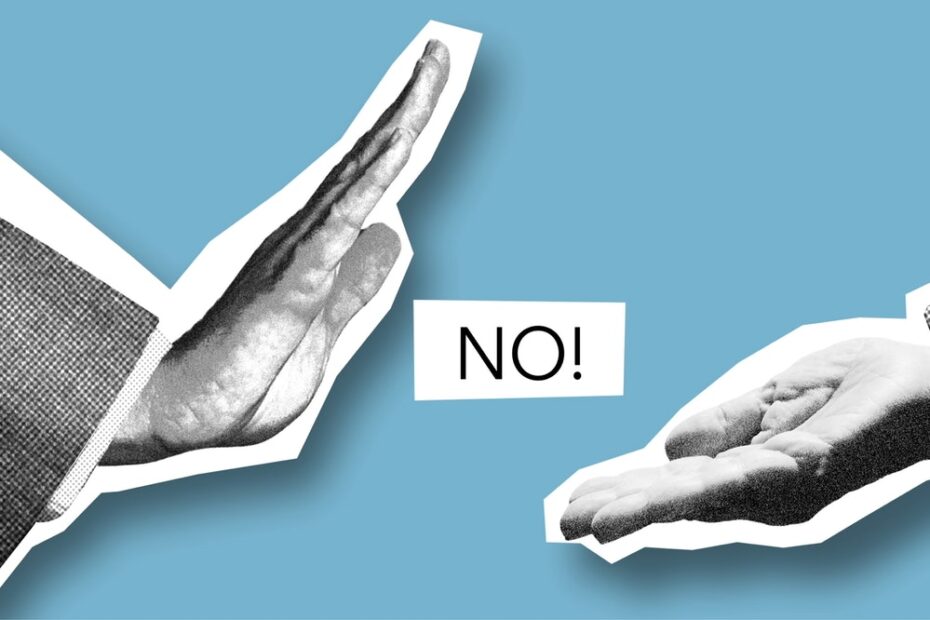Your SAS compensation claim is rejected. What now?
You’ve put in a request for compensation, but it’s been turned down. This can be particularly irritating when you’ve tried to claim SAS compensation independently and you aren’t entirely sure whether you are eligible for any compensation. What’s your next move? Is it even worthwhile to pursue the compensation? To begin with, it’s definitely worth it. You can hand your claim over to a flight compensation company to proceed on your behalf. However, this is not the only alternative.
You have the option of continuing to advocate for your rights individually.
Check your compensation online.
Your SAS Compensation Claim Is Rejected. What’s Next?
Your SAS compensation claim is rejected. What now?
There are alternate methods to secure compensation from SAS.
But before proceeding, familiarise yourself with the law and reassess your rights.
1. Collaborating With Flight Compensation Companies
The most straightforward approach is to collaborate with a flight compensation firm.
All it requires from your end is to complete a digital form, provide them with copies of your boarding pass and passport, and sign the claim. Largely, you needn’t concern yourself with anything else. The firm handles the rest. You aren’t required to correspond with SAS any further.
If there are any further queries, something only you can answer, the compensation claim company will reach out to you. The only disadvantage is the fees. Most flight compensation services charge approximately 25-45% of the compensation.
Our partners offer these services.
Check your compensation online.
When choosing this option, here is all you will have to do:
And that’s it — the rest is handled by professionals.
* Your boarding pass and passport or ID copy.
What is the cost?
Generally, the cost is around 25 to 45 percent of the compensation amount. The remainder is transferred to you. If you don’t secure compensation, you’re not required to pay.
Read more:
2. Reaching Out to the NEB of the Flight’s Origin Country
Collaborating with a flight compensation firm isn’t the only method.
Reaching out to the NEB (National Enforcement Bodies) is the subsequent step after you’ve attempted to contact the airline independently and have received a denial or no response. This is a free service. However, it’s not as hassle-free as working with a flight compensation firm and it can be time-consuming. For them to process your compensation request, it usually takes at least 2 months.
The major disadvantage — even if your request is accepted, it doesn’t guarantee that you will secure compensation. SAS may still reject the request.
A list of the National Enforcement Bodies can be found here.
The National Enforcement Bodies assist passengers in the event of denied boarding, flight delay or cancellation, as well as enforces the regulation Regulation (EC) 261/2004 and makes sure passengers are treated according to these rules.
3. Escalating the Matter to Court
Your SAS compensation claim is rejected.
The subsequent step is to take legal action.
It’s highly recommended to wait for a favorable ruling from the NEB first. Because having it will greatly assist your case against the airline (SAS in this case).
While this is the most complicated option, it’s also highly effective. Before proceeding with legal action, ensure that your claim is legitimate. Reevaluate your rights and formulate your argument. Only then can you be confident that it’s worth the effort. If the NEB verdict states that you are entitled to compensation, include it in the court documents.
Remember that taking your case to court incurs costs.

Extraordinary Circumstances
Often, airlines avoid providing a clear reason for denying your claim.
They provide a vague reason, and that’s all there is to it.
They are prone to labeling “everything” as extraordinary circumstances.
The underlying reason is straightforward — paying compensation doesn’t generate profits for any business. This is why airlines attempt to evade compensation. Airlines are aware that most passengers aren’t fully knowledgeable about their rights. And airlines exploit this. Be a bit skeptical when you hear this term next time.
As per EU regulation 261/2004, airlines are exempt from paying flight compensation when the disruption is due to extraordinary circumstances. The extraordinary circumstances encompass severe weather, political and civil unrest, and hidden manufacturing defects. That’s correct, only hidden manufacturing defects are deemed as extraordinary circumstances. Most technical issues are considered the airline’s fault (the airline’s responsibility).
Furthermore, bad weather isn’t always an extraordinary circumstance. In some instances, the weather conditions are absolutely predictable. For instance — snow during the winter months (unless snow is infrequent in that area). In such scenarios, the airline is expected to implement necessary measures to ensure punctual flight operations.
Uncover the actual reason behind the delay or cancellation.
It’s important.
Check your compensation online.

Under What Circumstances Can You Claim Flight Compensation From SAS?
There are a number of scenarios in which you can apply for flight compensation.
These circumstances include flight delays, cancellations, and instances when you are denied boarding due to overbooking.
1. Flight Delays
As stipulated by EU Regulation 261/2004, you have the right to claim compensation if your flight reaches its destination more than three hours after the scheduled arrival.
The compensation amount is dependent on the duration of the delay and the distance of the flight. For instance, if your flight from London to Paris, a short distance of under 1,500km, is delayed by four hours, you can claim up to €250 in compensation.
Read more: SAS Flight Delay Compensation
2. Flight Cancellations
If your flight is cancelled without notice of at least 14 days, you can claim compensation.
The compensation amount is based on the distance of the flight and the delay in reaching your final destination. For example, if your flight from Rome to New York, a long distance of more than 3,500km, is cancelled without proper notice and you reach your final destination over four hours late with a replacement flight, you can claim up to €600 in compensation.
You may also opt for a full SAS refund, instead of an alternative flight.
Read more: SAS Flight Cancellation Compensation
3. Denied Boarding Due to Overbooking
Airlines occasionally overbook flights in anticipation that some passengers will not show up.
If you are denied boarding because of overbooking and you don’t voluntarily surrender your seat, you can claim compensation.
The compensation amount is based on the distance of your flight. Let’s say you are travelling from Berlin to Madrid, a medium distance between 1,500km and 3,500km, and you are denied boarding due to overbooking. If you reach your final destination more than three hours late, you can claim up to €400 in compensation.
Read more: SAS Denied Boarding Compensation
Do you have more questions on what to do if your SAS compensation claim is rejected? What is your experience with SAS compensation claims? Did you take the case to NEB or court? Or you didn’t experience any difficulties when claiming SAS flight compensation?
Featured photo by Monstera Production from Pexels
